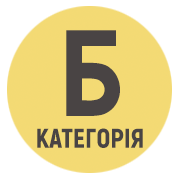ВИБІР ПІДХІДНОГО МЕТОДУ ЧИСЛІВОГО ІНТЕГРУВАННЯ ДЛЯ РІШЕННЯ ЗАВДАННЯ ОПТИМАЛЬНОГО УПРАВЛІННЯ АСИНХРОННИМ ДВИГУНОМ
Ключові слова:
Векторне керування, асинхронні двигуни, управління з прогнозуванням на основі градієнта, оптимальний потік ротора, енергоефективність, інтегратори.Анотація
У даній роботі описано застосування управління з прогнозуванням на основі градієнта в стратегії енергоефективного керування векторно-керованим асинхронним двигуном в перехідному режимі при зміні умов навантаження. Для моделювання асинхронного двигуна з орієнтацією по полю ротора, використовується модель в просторі станів. Завдання оптимального управління визначається як мінімізація інтеграла втрат енергії з обмеженнями. З цією метою умови оптимальності першого порядку визначаються на основі принципу максимуму Понтрягіна. Описано основний алгоритм вирішення задачі оптимального управління. Обговорюються алгоритмічні параметри управління з прогнозуванням для завдання чисельного інтегрування. Показано, що шляхом належного вибору методу чисельного інтегрування можна отримати оптимальну траєкторію струму намагнічування з більш низькими піковими значеннями в порівнянні з іншими методами.
Посилання
Bazzi, A. M. and Krein , P. T., Review of Methods for the Real-Time Loss Minimization in Induction Machines, IEEE Transactions on Industry Applications, vol. 46, no. 6, pp. 2319-2328, 2010.
Blanusa, B., New Trends in Efficiency Optimization of Induction Motor Drives, New Trends in Technologies: Devices, Computer, Communication and Industrial Systems, 2010.
Raj C. T., Srivastava S. P., and Agarwal P., Energy Efficient Control of Three-Phase Induction Motor – A Review, International Journal of Computer and Electrical Engineering, vol. 1, no. 1, pp. 61-70, 2009.
Abrahamsen, F., Energy Optimal Control of Induction Motor Drives. Dissertation, Aalborg: Institut for Energiteknik, Aalborg Universitet, 2000.
Lorenz, R. D. and Yang, S. M., Efficiency-Optimized Flux Trajectories for Closed-Cycle Operation of Field-Orientation Induction Machine Drives, IEEE Transactions on Industry Applications, vol. 28, no. 3, pp. 574-580, 1992.
Klenke, F. and Hofmann, W., Energy-Efficient Control of Induction Motor Servo Drives With Optimized Motion and Flux Trajectories, Proceedings of the 14th European Conference on Power Electronics and Applications, pp. 1-7, 2011.
Canudas de Wit, C. and Ramirez, J., Optimal Torque Control for Current-Fed Induction Motors, IEEE Transactions on Automatic Control, vol. 44, no. 5, 1084-1089, 1999.
Stumper, J.-F., Dötlinger, A. and Kennel, R., Loss Minimization of Induction Machines in Dynamic Operation, IEEE Transactions On Energy Conversion, vol. 28 no. 3, pp. 726–735, 2013.
Ranta, M., Qu, Z., Hinkkanen, M., and Luomi, J., Loss-Minimizing Flux Level Control of Induction Motor Drives, IEEE Transactions on Industry Applications, vol. 48, no. 3, pp. 952-961, 2012.
Diachenko, G. and Schullerus, G., Simple dynamic energy efficient field oriented control in induction motors, Proceeding of the 18th International Symposium on Power Electronics, Novi Sad, Republic of Serbia, 28-30 Octob. 2015.
Aziukovskyi, O.O. and Bakutin, A.V., Design of Optimal High-Order Speed Controller, Naukovyi Visnyk Natsionalnoho Hirnychoho Universytetu, no. 1, pp. 71-76, 2014.
Käpernick, B., Graichen, K., U., GRAMPC documentation, Institute of Measurement, Control, and Microtechnology, University of Ulm, 2014.




